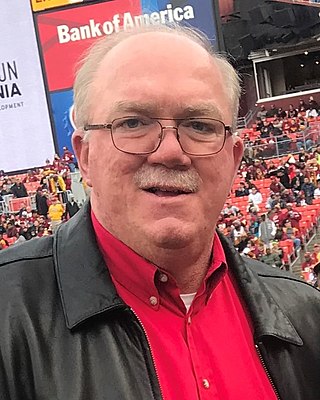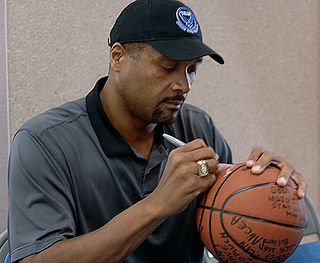Related Research Articles

Super Bowl XVII was an American football game between the American Football Conference (AFC) champion Miami Dolphins and the National Football Conference (NFC) champion Washington Redskins to decide the National Football League (NFL) champion for the strike-shortened 1982 season. The Redskins defeated the Dolphins, 27–17, to win their first Super Bowl championship. The game was played on January 30, 1983, at the Rose Bowl in Pasadena, California.

Super Bowl XVIII was an American football game played on January 22, 1984, at Tampa Stadium between the National Football Conference (NFC) champion and defending Super Bowl XVII champion Washington Redskins and the American Football Conference (AFC) champion Los Angeles Raiders to determine the National Football League (NFL) champion for the 1983 season. The Raiders defeated the Redskins, 38–9. The Raiders' 38 points scored and 29-point margin of victory broke Super Bowl records; it remains the most points scored by an AFC team in a Super Bowl, later matched by the Kansas City Chiefs in Super Bowl LVII. This is the first time the city of Tampa hosted the Super Bowl and was the AFC's last Super Bowl win until Super Bowl XXXII, won by the Denver Broncos.

Super Bowl XXII was an American football game between the National Football Conference (NFC) champion Washington Redskins and American Football Conference (AFC) champion Denver Broncos to decide the National Football League (NFL) champion for the 1987 season. The Redskins defeated the Broncos by the score of 42–10, winning their second Super Bowl. The game was played on January 31, 1988, at Jack Murphy Stadium in San Diego, California, which was the first time that the Super Bowl was played there. It was the second consecutive Super Bowl loss for the Broncos, who had lost to the New York Giants in the Super Bowl the year before.

Super Bowl XXVI was an American football game between the National Football Conference (NFC) champion Washington Redskins and the American Football Conference (AFC) champion Buffalo Bills to decide the National Football League (NFL) champion for the 1991 season. The Redskins defeated the Bills by a score of 37–24, becoming the fourth team after the Pittsburgh Steelers, the now Las Vegas Raiders and the San Francisco 49ers to win three Super Bowls. The Bills became the third team, after the Minnesota Vikings and the Denver Broncos to lose back-to-back Super Bowls. The game was played on January 26, 1992, at the Hubert H. Humphrey Metrodome in Minneapolis, Minnesota, the first time the city played host to a Super Bowl.

Joe Jackson Gibbs is an American auto racing team owner and former football coach. He served as the head coach of the Washington Redskins of the National Football League (NFL) from 1981 to 1992 and then 2004 to 2007, leading them to nine playoff appearances, four NFC Championship titles, and three Super Bowl wins over 16 seasons.

Joseph Robert Theismann is an American former professional football player, sports commentator, corporate speaker, and restaurateur. He rose to fame playing quarterback in the National Football League (NFL) and Canadian Football League (CFL). Theismann spent 12 seasons with the Washington Redskins, where he was a two-time Pro Bowler and helped the team to consecutive Super Bowl appearances, winning Super Bowl XVII over the Miami Dolphins and losing Super Bowl XVIII. He played college football for the Notre Dame Fighting Irish and was inducted into the College Football Hall of Fame in 2003.

Joseph John Bugel was an American professional football coach in the National Football League (NFL). For many years, he was acknowledged as the greatest offensive line coach in the league, particularly with the Washington Redskins under head coach Joe Gibbs in the 1980s. He was the architect behind "The Hogs", the Redskins' dominant offensive line that helped lead them to three Super Bowl wins.
In American football, a counter run is a running play that starts in one direction but ends in the other direction. Typically, the running back will a step in the opposite direction of the play, only to get the handoff in the other direction. Weak side linemen will sometimes pull and lead the back downfield, but not necessarily. The play is designed to get the defense to flow away from the action for a few steps, allowing better blocking angles for the offensive line, and more room for the running back. The purpose of the counter run is to keep defenses honest and prevent them from easily being able to pursue the play aggressively. It is most effective against defenses that tend to overpursue and can be used on its own to potentially produce a big running play against defenses that get out of position and fail to stay home.

Joseph Erwin Jacoby is an American former professional football player who was an offensive tackle for the Washington Redskins of the National Football League (NFL). He won three Super Bowls during his tenure with the team.

Russell Scott Grimm is an American former professional football player who was a guard for the Washington Redskins of the National Football League (NFL). He has also served as an assistant coach for the Redskins, Pittsburgh Steelers, Arizona Cardinals, and Tennessee Titans. As a professional, Grimm had multiple selections to both the All-Pro and Pro Bowl teams, and was inducted into the Pro Football Hall of Fame in 2010. Grimm played 11 seasons for the Redskins and was a first-team selection to the NFL 1980s All-Decade Team.

Jeffrey Lynn Bostic is an American former professional football player who was a center for the Washington Redskins of the National Football League (NFL). He played college football for the Clemson Tigers. Named to the Pro Bowl in 1983, Bostic won three Super Bowls with the Redskins.
George Lawrence Starke is an American business owner, activist, broadcaster and former professional football player who was an offensive tackle for the Washington Redskins of the National Football League (NFL) from 1973 to 1984.

Mark Eric May is an American former professional football player who was a guard for 13 seasons in the National Football League (NFL) during the 1980s and 1990s. May played college football for the Pittsburgh Panthers and earned unanimous All-American honors. He was selected in the first round of the 1981 NFL draft, and played professionally for the Washington Redskins, San Diego Chargers, and Arizona Cardinals.

The Washington Commanders are a professional American football franchise based in the Washington metropolitan area. They are members of the East division in the National Football Conference (NFC) of the National Football League (NFL). The Commanders were founded in 1932 as the Boston Braves, named after the local baseball franchise. The franchise changed its name the following year to the Redskins and moved to Washington, D.C. in 1937. In 2020, the team retired the Redskins name after longstanding controversies surrounding it and briefly became the Washington Football Team, before choosing the Washington Commanders as their permanent name in 2022.

Jay Brian Schroeder is an American former professional football player who was a quarterback in the National Football League (NFL). He played college football for the UCLA Bruins, after which he was selected in the third round of the 1984 NFL draft by the Washington Redskins, where he played for four seasons. He then played for the Los Angeles Raiders for five seasons and spent one season each with the Cincinnati Bengals and Arizona Cardinals.

Kenneth Wayne Huff is an American former professional football player who was an offensive lineman in the National Football League (NFL). He was also an All-American guard at the University of North Carolina.
Otis Wonsley is an American former professional football player who was a running back for the Washington Redskins of the National Football League (NFL). He played college football for the Alcorn State Braves and was selected in the ninth round of the 1980 NFL draft.

The 1982 Washington Redskins season was the franchise's 51st season in the National Football League (NFL) and their 46th in Washington, D.C. Although the Redskins lost all their preseason games, they advanced from an 8–8 record the previous season to become one of the only two teams in NFL history to win the Super Bowl after not winning a pre-season game. The 1990 Buffalo Bills and 2000 New York Giants also made it to the Super Bowl after a winless pre-season, but they did not win the Super Bowl.

The Hogettes were a group of fans of the Washington Redskins who wore women's dresses, garden party hats, and pig snouts. The group was founded in 1983 by Michael Torbert and became a regular fixture at Redskins games for nearly 30 years. When the group announced its retirement following the 2012 season, it had over 20 members, including three who have been featured in an exhibit at the Pro Football Hall of Fame.

The 1987 season was the Washington Redskins' strike-shortened 56th season in the National Football League (NFL), their 52nd in Washington, D.C., and their seventh under head coach Joe Gibbs. The season was a shortened season due to the 1987 NFL strike.
References
- ↑ Brener, Jeremy. "Meet The Commanders 'Controversial' New Mascot, Major Tuddy". SI. Retrieved January 2, 2023.
- 1 2 The History of the Hogs. Retrieved October 2, 2012.
- ↑ Paul Attner (November 27, 1982). "Some Redskins 'Hogging' the Victories". The Washington Post . Retrieved October 2, 2012.
- ↑ The Hogettes. Retrieved October 2, 2012.
- ↑ "Redskins fans 'Hogettes' retiring". ESPN.com. Retrieved January 11, 2013.